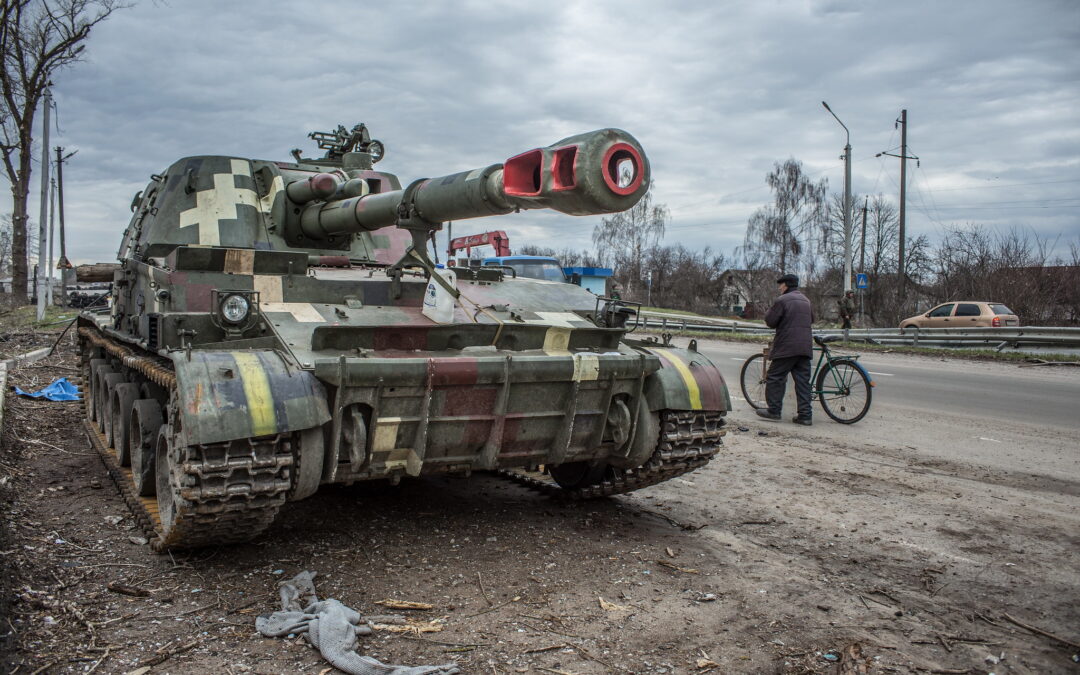Keep our news free from ads and paywalls by making a donation to support our work!

Notes from Poland is run by a small editorial team and is published by an independent, non-profit foundation that is funded through donations from our readers. We cannot do what we do without your support.
For the first time, a majority of Poles believe the war in Ukraine should end even if it requires Kyiv to cede part of its territory or independence, the latest findings from a regular survey by Polish state research agency CBOS have shown.
The poll, carried out in November, found that 55% of respondents believe it is best to “strive above all for an end to the war and return of peace even if Ukraine has to give up part of its territory or part of its independence”.
CBOS notes that this view has been steadily gaining traction: in November 2022, only 24% of Poles held such an opinion, rising to 33% in November 2023 and 39% in September this year. It has now exceeded 50% for the first time.
Meanwhile, only 31% of respondents now hold the opposing view, that it is best to “continue fighting and not make any concessions to Russia”. That figure has fallen from 46% in September this year, 59% in November 2023 and 64% in November 2022.

CBOS suggests that the recent “abrupt change” in the opinion of Poles “probably has to do with both increasingly bad reports from the Ukrainian front and Donald Trump’s victory in the US presidential election, announcing a reduction in support for embattled Ukraine and a move to end the conflict”.
The poll also showed demographic and political divides among Poles. Support for ending the conflict even at the cost of Ukrainian concessions is particularly high among voters of the far-right Confederation (Konfederacja), where it stands at 73%, and national-conservative Law and Justice (PiS), at 62%.
Supporters of Poland’s ruling coalition are less likely to favour that option, with the figure standing at 48% for voters of the centrist Civic Coalition (KO) and 45% for the centre-right Third Way (Trzecia Droga). The sample size for The Left (Lewica) was not large enough among respondents to be included.
Support for ending the conflict is also strongest among Poles aged 18–24 (61%), individuals with lower levels of education (59%), those who rate their financial situation poorly (65%), and regular religious practitioners (68%).
A separate question, in which respondents were asked what they think the outcome of the war will be (rather than what option they personally favour), also indicated growing pessimism among Poles.
A large majority (61%) think Ukraine will have to cede part of its territory, up from 44% in September and almost three times the figure of 23% recorded in November 2022.
Now only 15% think the war will end with Russia withdrawing either completely from Ukraine (3%) or from all territories apart from Crimea (12%), down from 25% in September and 54% in November 2022.

Since the beginning of the war, Poland has been one of Ukraine’s most vocal allies, providing Kyiv with humanitarian, diplomatic and military support, as well as receiving millions of Ukrainian refugees.
However, tensions have risen between the two countries over the last year or so, in particular, due to blockades of the border by protesting Polish farmers and disputes over the World War Two massacres of ethnic Poles by Ukrainian nationalists.
Poland’s government, however, remains a staunch supporter of Ukraine, with Prime Minister Donald Tusk visiting Lviv last week to meet President Volodymyr Zelensky and to call on the West to increase support for Kyiv.
Poland's @donaldtusk has made an unannounced visit to Ukraine, where he met with @ZelenskyyUa and called on Western countries to strengthen their support for Kyiv.
“Stop speculating in any world capital about a possible defeat of Ukraine,” warned Tusk https://t.co/R30vyN9tHk
— Notes from Poland 🇵🇱 (@notesfrompoland) December 17, 2024

Notes from Poland is run by a small editorial team and published by an independent, non-profit foundation that is funded through donations from our readers. We cannot do what we do without your support.
Main image credit: UNDP Ukraine/Flickr (under CC BY-ND 2.0)

Alicja Ptak is deputy editor-in-chief of Notes from Poland and a multimedia journalist. She has written for Clean Energy Wire and The Times, and she hosts her own podcast, The Warsaw Wire, on Poland’s economy and energy sector. She previously worked for Reuters.



















